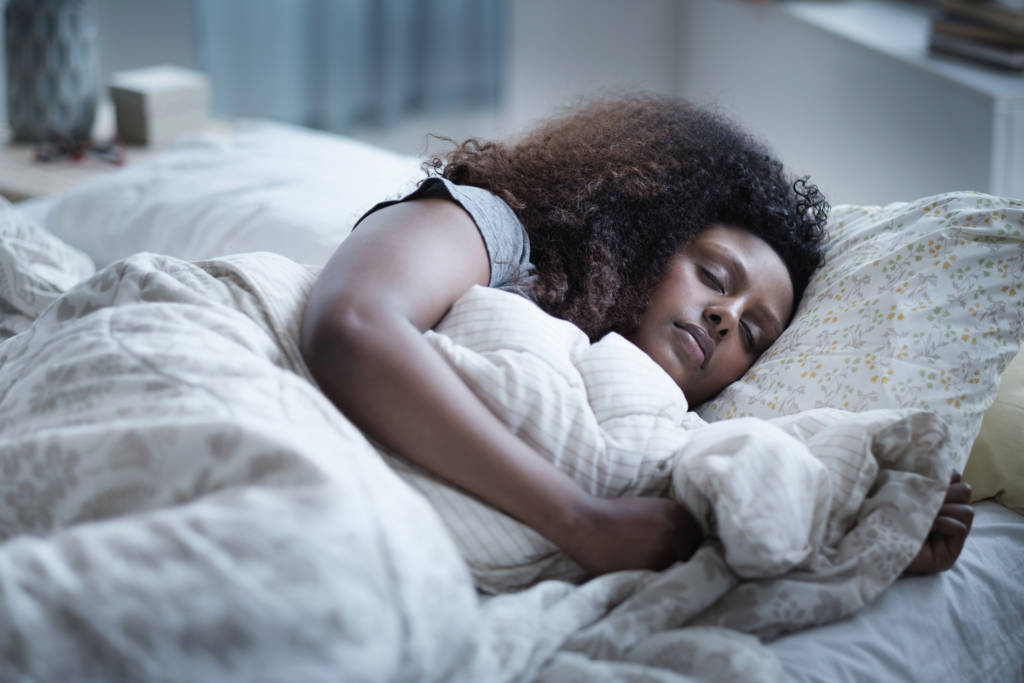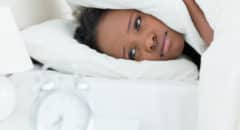
Tossing and turning consumes almost 80% of American adults who’ve stated they’ve had trouble falling asleep or staying asleep most nights according to a Consumer Reports survey.
Sure, an occasional night without sleep makes you feel tired and irritable the next day. However, if it continues, lack of sleep can affect your overall health and make you prone to serious medical conditions, such as obesity, heart disease, high blood pressure, and diabetes.
Having trouble getting to sleep and tired of taking pills for it? Try these 6 natural sleeping aids:
1. Passion Flower Tea
Studies have also found that passionflower is good for improving sleep quality and can be an effective treatment for insomnia. Passionflower may even be more effective for insomnia when combined with other herbs.
The combination of passionflower, valerian, hops, and lemon balm is a common formula used by naturopathic physicians for inducing sleep. Brewing tea is best, but you can also get it in the form of oil, lotion, or vitamin.
2. Lavender Essential Oil
Lavender essential oil offers calming and soothing properties that can help reduce stress. It also serves as a great sleep aid by helping us fall asleep faster and enhancing our sleep quality during the night.
It’s recommended to use a high-quality essential oil that’s 100% pure, natural, and undiluted. Add it to your bath, diffuser or body mist.
3. CBD
Also known as cannabidiol, it is actually a compound found in natural marijuana and hemp that doesn’t get you high. Researchers have found that the effect of CBD on the brain has properties that could help some people sleep better.
Most notably, it appears to ease anxiety and pain, both of which can make it harder to fall asleep or stay asleep. CBD can come in several forms, from oils, tinctures, creams, lotions, capsules and pills, down to edibles, and the natural bud to smoke.
4. Jujube Tea
For people suffering from insomnia or restlessness, consuming the extract of the seeds of the jujube fruit can be a good remedy. The soothing nature of the organic compounds contained in this beneficial fruit can calm the body and mind.
Try brewing the seed or getting it in the form of a tea bag to get some sleep at night.
READ: Getting Better Overall Sleep Might Be the Key to Better Health
5. Melatonin-Rich Foods
Studies suggest that melatonin may help with certain sleep disorders, such as jet lag, delayed sleep phase disorder, sleep problems related to shift work, and some sleep disorders in children. Some melatonin-rich foods to consume before bed include:
-Fruits and vegetables like tart cherries, corn, asparagus, tomatoes, pomegranate, olives, grapes, broccoli, and cucumber.
-Grains like rice, barley, and rolled oats.
-Nuts and seeds like walnuts, peanuts, sunflower seeds, mustard seeds and flaxseed
READ: Bedgasm: 6 Tips For A Better Night's Sleep
6. Magnesium-Rich Foods
Insomnia is a common symptom of magnesium deficiency. People with low magnesium often experience restless sleep and waking frequently during the night. Maintaining healthy magnesium levels often leads to deeper, more sound sleep.
Magnesium plays a role in supporting deep, restorative sleep by maintaining healthy levels of neurotransmitters that promotes sleep. Foods rich in magnesium are whole wheat, spinach, quinoa, almonds, cashews, peanuts, dark chocolate, black beans, bananas, edamame, and avocado.

Tia Muhammad, BS, is an award-winning freelance content & media creative, copywriter, blogger, digital designer, and marketing consultant. She owns the boutique content and digital media company, jackieGLDN|studio.









